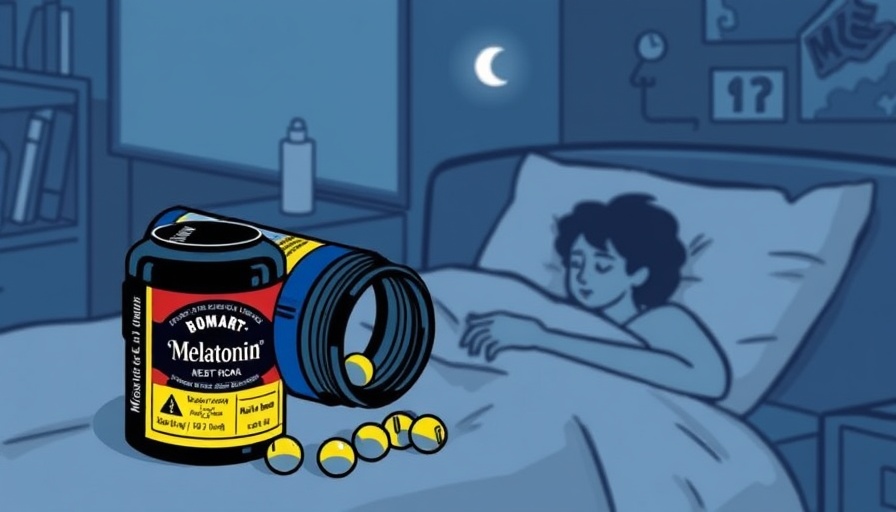
The Rising Demand for Sleep Solutions
As indicated by a recent report, the sleepless nights faced by millions are pushing families to seek alternatives that may not be safe or effective. The troubling rise in black-market melatonin underscores a reality that many do not want to face: people are desperate for quality sleep. In the UK alone, research by The Sleep Charity reveals that over 14 million individuals may be suffering from undiagnosed insomnia, with nearly 90% of adults experiencing sleep issues. This staggering statistic illustrates an urgent public health concern that cannot be ignored.
The Need for a National Sleep Strategy
Experts agree that the UK needs a comprehensive sleep strategy. Currently, 1 in 6 individuals with sleep disorders have received formal diagnoses, despite guidelines recommending cognitive behavioral therapy for insomnia (CBT-I) as a first-line treatment. The irony is that even after being recognized as the gold standard since 2009, effective interventions, particularly face-to-face CBT-I, are rarely available through the NHS. This gap in accessible care prompts families to turn toward dubious, unregulated sleep aids.
The Risks of Unregulated Solutions
Black-market melatonin may seem like an easy fix, yet it is critical to recognize the potential risks involved, particularly for children. Unsupervised use could result in unforeseen side effects, leaving parents worried and unarmed in their quest for quality sleep. Through public health campaigns and increased awareness, families can be better educated about the importance of safe sleep practices and the risks inherent in self-prescribing.
Community Health and Wellness Initiatives
Promoting better sleep practices is vital for overall health and wellness. Communities can support sleep hygiene by endorsing norm-based health initiatives, such as wellness events focused on sleep education. These programs could include workshops on establishing healthy sleep routines, the benefits of relaxation techniques, and awareness about the importance of mental health on sleep quality.
Future Predictions for Improved Sleep Solutions
As discussions about sleep disorders gain momentum, we could expect more funding for innovative sleep therapies like digital CBT-I. With a *national sleep strategy*, public health awareness can shift attitudes surrounding sleep to see it as a fundamental component of health rather than a luxury. Engaging healthcare professionals in ongoing training about holistic treatments rather than medication can change lives.
Call to Action
To facilitate positive change, everyone has a role to play. Share your sleep concerns with healthcare providers, support local health initiatives, or advocate for improved sleep services in your community. Understanding the importance of sleep not only empowers individuals but also forces policymakers to take action.
Conclusion
As our understanding of sleep continues to evolve, it is paramount that this topic remains in the spotlight. The journey to finding effective solutions for healthy sleep should not be obscured by desperate measures. Let's prioritize sleep through community support, education, and advocating for better access to health services—because every family deserves peaceful nights of restorative sleep.
 Add Element
Add Element  Add Row
Add Row 



Write A Comment